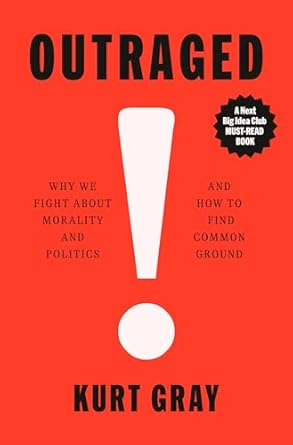
Bibliographic information:
Author: Kurt Gray
Narrated by: David Marantz
Release date: January 14, 2025
Audiobook Duration: 13 h 35 min
Sign up to start listening to audiobooks and get your first book free and 2 bonus books from our VIP selection! If you like us, enjoy 1 audiobook (and 1 bonus VIP book) a month for just $14.95 (USD). Cancel anytime.
BOOK DESCRIPTION: A groundbreaking new perspective on the moral mind that rewrites our understanding of where moral judgments come from, and how we can overcome the feelings of outrage that so often divide us
It’s easy to assume that liberals and conservatives have radically different moral foundations. In Outraged, Kurt Gray showcases the latest science to demonstrate that we all have the same moral mind—that everyone’s moral judgments stem from feeling threatened or vulnerable to harm.
We all care about protecting ourselves and the vulnerable. Conflict arises, however, when we have different perceptions of harm. We get outraged when we disagree about who the “real” victim is, whether we’re talking about political issues, fights with our in-laws, or arguments on the playground.
In this fascinating and insightful tour of our moral minds, Gray tackles popular myths that prevent us from understanding ourselves and those around us. While it is commonly believed that our ancestors were apex predators, Gray argues that for the majority of our evolutionary history, humans were more hunted than hunter. This explains why our minds are hard-wired to perceive threats, and provides surprising insights on the scientific origins of our values and beliefs. Though we might think ourselves driven by objective reasoning, Gray unveils new research that finds our moral judgments are based on gut feelings rather than rational thought, and presents a compelling reminder that we are more alike than we might think.
Drawing on groundbreaking research, Gray provides a captivating new explanation for our moral outrage, and unpacks how to best bridge divides. If you want to understand the morals of the “other side,” ask yourself a simple question—what harms do they see?

